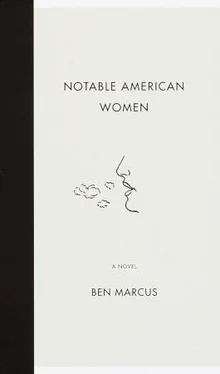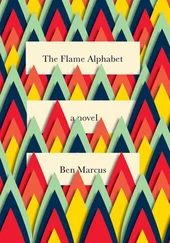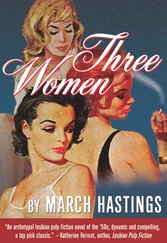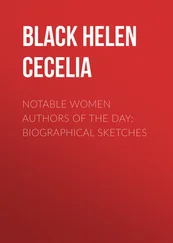The book should be closed so hard that a wind blows from it, gusting however feebly into whatever little world there is left. The day will be late, the sun a small accident in the sky, quickly apologizing from sight. This book wind will blow on whatever people happen to get in front of it, whoever’s not too terribly tired to walk a short routine in the park and show off their body to the Bird. A shy breeze will rub their faces, twisting their hair into punctuation above their heads, the way wind from another town feels different and wrong and reminds you how far from home you are; some touch or gust or small warning of themselves, all from the wind released by this book, and briefly something will matter, though it will never be articulated or shared, but the wind will continue to digress, deflecting from bodies and objects, losing itself in the things of this world that pass for bodies and people, and the last little breeze from this book will finally fade out somewhere near the coast, where the land is dying every day into the water, just shy of the ocean, ending in a brief ripple in the sand.
If this wind were colored red, by a process that probably will get invented sometime soon, a cartoon weather to further exaggerate what goes on around us, lest we missed the point, in case some tiny fraction of life had miraculously gone unexplained, then the wind from this book would look like blood introduced into water, curdled and red and slow, a thick and terribly detourable fluid that can easily be diluted and absorbed invisibly into the larger world, and dissipatingly killed, by a simple wave of the hand.
There would be no funeral, unless a funeral can be characterized as a period of mass, united indifference; only a moment when everyone everywhere is all at once awake, in cities and in the country and even our enemies at sea, coincidentally thinking simultaneously of nothing at all in common, standing or sitting or reclining or diving, in an apparent world that is suddenly, and only for a moment, and for the very first time, completely free of air.
The tombstone for this book will read THE END.
Better Reading Through Food
MY LIFE HAS BEEN LIVED under the strategic nourishment of the Thompson Food Scheme, a female eating system (FEAST) devised by an early Jane Dark deity construct named Thompson, who later became an actual person, though not a good one. The food regimen I have followed was further modified by my “parents” to suit their early experiments with silence and voluntary paralysis, not to mention the person-shaping projects they conducted on myself and my sister, who died for other reasons.
The diet Thompson and his food team developed was meant at first to favor a woman’s mind and blood, to dispose her to the vowel world hidden within American dialects and weather, and lastly to enable strains of behavior considered to be distinctly female — actions, thoughts, and standing poses only girls and women can produce. It is also a diet meant to feed and promote silence, limit motion, and restrict hearing and speech to an all-vowel repertoire. In my own case, a symptom of selective deafness (to my father’s voice, then later deafness to my own voice) emerged in my youth that I cannot help but relate to the food I eat.
Indeed, the word “eat” does not adequately cover what can be done with foodstuffs. For instance, I consume nuts in great quantities, as well as every kind of nut butter and the water extracted from pressed vegetable seeds, though the seeds themselves would poison me. I drink milk and sometimes take a syringe of pure, animal milk into a delicate vein in my ankle. In the morning, I chew the skins of fruit; the pulp is stored under my tongue throughout the day, then discarded into my chewed-food wallet, and later archived. I apply a fiber poultice against my legs, using a roughage sponge, and likewise use the meal of oats as a crushed paste under my arms or at the nape of my neck when I am fasting. In the evening, I spray my eyes with plant milk before retiring; this lubricates my blinking apparatus during sleep, throwing more light into my dreams, though I’m not much of a believer in the imagination. Every Sunday, I chew heated strips of linen, then stuff a handful of bleached soundproof linen in my mouth to prepare the area for food or speech purges.
If I’m going to say something important to my father, I’ll fasten a tourniquet around my waist before I eat, to prevent lower-body absorption of the nutrients, which drives all of my bodily resources into my head in one huge rush, ensuring that my Dispute and Conflict Faculties will be fully charged.
Monthly, I cast a hot mold of my inner mouth, to catalog the changes to my palate, which helps me discern my purpose as a “person” and divine my next move in this world. The goal is to dilate the mouth cavity so that it can store more wind and inhale or alter the excess language in a room — since language is made, changed, and destroyed by air and man-made wind— although I would emphasize that I am not a word-eater. In the great state of Ohio, where I once had a home, there is a collection of Ben Marcus Palate Casts — also called Thompson Sticks, if the molding extends into the windpipe — that chart the structural changes to my inner head as I have trafficked into the present moment (huffed). My palate is shrinking and turning smooth over time, as certainly is my head, my hands, my heart.
I pursue food with my head and limbs wrapped in various fabrics, usually linen filters extracted from the Great Antenna — which increases the speech vitamins in my food, and primes my body to decipher women’s radio waves, in case a command is given and Mother requires my help — but also cottons, wools, and rayons, burlap, and woven foil. I wear a helmet when I eat meat. If my diet requires bread or bread sticks or soaked dough, which it rarely does, or if bean oil, stew, or cake is indicated as a surface disguise or color filter for the object I’ll be concealing in my body, I must take the nourishment while blindfolded and breathe into a cloth mouth-guard for one hour afterward; otherwise, I’ll die. Cheese is forbidden because it conceals accelerated milk. But I have farmed and eaten a cheese made from antique water samples left to harden and mold in my sister’s wooden jewelry box. It’s a translucent cheese with no nutrients or calories, but it animates the body during sleep and possibly improves deep listening skills. If something is being said, anywhere, I care to hear it. This cheese is also produced naturally in the hair of women who diet on girls’ water and follow a promise of stillness.
If I wear a food bell, although I haven’t worn one since my father attempted a tonal study of my motion within our home, and the bell rings while I am eating, indicating a spastic posture toward the meal, a fast is required to slow my body’s motion. When I was at my physical best, as a teenager, I could run away from Jane Dark if she or her assistants were chasing me — to enforce my copulative obligation at the Silentist compound — and I was frequently agile enough to keep the Ben Marcus Locator bell from ringing, even if it was fastened to my neck. I could run gracefully enough, though to many observers it appeared that I was hardly moving my limbs at all, arcing over the territory as if someone had thrown me.
Fasting is a common element in the Thompson Food Scheme, naturally, and it is fasting that will be recommended to the reader before setting forth into this book. The kinds of deep fasts, food-deprivation strategies, and language-cleansing styles certainly vary. Nor do fasts necessarily cause weight loss or decay of bone and muscle, although if I fast while listening to a recitation of all-vowel children’s literature, I am prone to produce a small thread of human milk from my chest, after which I can be weary and given to fainting. Much of this boy’s milk has been archived throughout my life and labeled in vials according to the genre that charmed it out of me. When I drink from the vials now, I can remember fondly those early stories of my youth: the adventures, mysteries, romances, and quest narratives that were converted by the Susan Group into an all-vowel format and hummed at me while I worked on the Great Antenna.
Читать дальше












